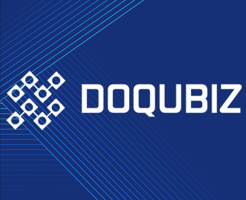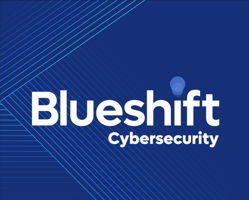What is Endpoint Security? Its Critical Role in Protecting Your Network
 Brett Hansen
·
5 minute read
Brett Hansen
·
5 minute read
In today’s digital age, where cyber threats loom at every corner, ‘what is endpoint security’ is not just a question, it’s a crucial foundation for safeguarding your organization’s data and networks. Endpoint security is the specific practice of defending the entry points of end-user devices such as computers, mobile phones, and tablets from being exploited by malicious actors. These endpoints are gateways to your organizational network and, if left unprotected, can present significant risks to your business infrastructure. Here, we’ll dive deep into the mechanics and significance of endpoint security, its key components, and how it stands as a formidable line of defense in your cybersecurity arsenal.
Key Takeaways
- Endpoint security is essential for protecting network-connected devices like desktops, laptops, mobiles, and IoT devices from cyber threats and is more effective than traditional antivirus software.
- Endpoint security strategies involve multi-layered approaches with Endpoint Protection Platforms (EPPs), Endpoint Detection and Response (EDR), and Advanced Threat Protection (ATP) technologies providing centralized control, continuous monitoring, as well as threat detection and response.
- With the rise of remote work and mobile/IoT device integration, ensuring endpoint security is challenging but critical, involving the adoption of strong security policies, access controls, and regular updates.
The Essence of Endpoint Security
Endpoint security meticulously secures the devices that connect to your network, protecting it from cyber threats. This protective measure is vital for the safety of sensitive business data and the smooth running of your organization’s operations. Endpoint security has outperformed traditional antivirus solutions by offering comprehensive endpoint protection solutions against advanced malware and emerging zero-day threats. The focus has shifted towards implementing more sophisticated defense mechanisms..
The surge in remote work and the proliferation of endpoints have necessitated robust endpoint security strategies. Such strategies can effectively:
- Detect attacks in progress
- Analyze the nature and severity of attacks
- Block malicious activities
- Contain attacks to prevent further damage
Endpoints have become the new corporate network perimeter, and implementing strong endpoint security, including endpoint solutions, is crucial to protect endpoints and sensitive corporate data, from cyberattacks.
Accordingly, endpoint security provides superior management and protection compared to antivirus software by centralizing security processes and guarding against a full spectrum of threats affecting the entire business network.
Defining Endpoint Security
Fundamentally, endpoint security is about securing end-user devices like:
- desktops
- laptops
- mobiles
- IoT devices
An endpoint, in this context, is any device that is connected to an organization’s network. This includes devices that connect to enterprise network from outside the organization’s firewall.
The protective layer rendered by endpoint security for these devices is instrumental in forestalling unauthorized network access and potential data breaches. With the proliferation of cyber threats, endpoint security has evolved to detect and respond to threats in real-time, offering a robust defense mechanism against potential intrusions and data breach.
The Significance of Endpoint Security
The escalating volume and sophistication of cybersecurity threats have amplified the need for advanced endpoint security solutions. The surge in remote work has led to the necessity of protecting more endpoints and a greater variety of endpoints than ever before.
Bring Your Own Device (BYOD) policies and the prevalence of Internet of Things (IoT) devices have contributed to an exponential increase in the types and numbers of endpoints connected to organizational networks. A staggering 73% of small and medium-sized business owners reported experiencing a cyberattack in 2022 or 2023, with many incidents originating at endpoints.
As such, endpoint security serves as the frontline of cybersecurity, emerging as a primary defense mechanism that organizations employ for network security.
Key Components of an Endpoint Security Solution
.png?width=1600&height=914&name=image4-min%20(2).png)
Endpoint security is a multi-layered approach incorporating an endpoint protection platform and security software with features such as:
- Advanced antimalware and antivirus
- Proactive web security
- Data loss prevention
- Integrated firewall
- Email gateways
- Insider threat protection
These features ensure comprehensive protection of endpoints with centralized software that reflects broader network defenses.
Endpoint security utilizes cross-environment correlation and behavioral analytics to identify and mitigate sophisticated threats. These, along with lightweight continuous monitoring sensors, provide advanced detection and effective remediation capabilities. Furthermore, endpoint security solutions enhance oversight with detailed reporting and alerts, and facilitate integration with other security systems for expanded visibility and collaborative, threat hunting and intelligence sharing.
Policy management within endpoint security systems is achieved through application and device control mechanisms. These govern which devices and software can access the network, based on whitelisting and blacklisting tactics. Granting network access only to trusted devices and software is a vital component of a robust endpoint security strategy.
Endpoint Security vs. Other Security Measures
.png?width=1600&height=914&name=image2-min%20(2).png)
Endpoint security focuses on securing all entry points for user-end devices, preventing vulnerabilities that can lead to cyber attacks. Some key features of endpoint security include:
- Protecting against malware and viruses
- Monitoring and controlling device access
- Encrypting data to prevent unauthorized access
- Detecting and responding to security incidents
- Providing remote management and updates
Centralized security solutions, while essential, are no longer sufficient to protect dispersed enterprise networks, requiring organizations to adopt endpoint security measures.
Contrastingly, traditional antivirus software relies on signature-based detection and often falls short against advanced threats such as fileless malware. Endpoint security, on the other hand, includes capabilities like monitoring for malicious activity and suspicious behavior, offering a more comprehensive protection. Endpoint security solutions can also automatically respond to detected threats, unlike antivirus which requires more human intervention.
Implementing Endpoint Security: On-Premises, Cloud, or Hybrid?
Selecting the appropriate deployment for your endpoint security solution is essential. Cloud-based endpoint security solutions offer advanced capabilities like rapid detection and response to sophisticated attacks, using cloud-native architecture for flexibility and scalability. The cloud’s vast resources improve strategic defense against attackers and enhance network visibility and resiliency, crucial for effective threat detection and response. Implementing cloud-based endpoint security measures, like a Cigent solution, can also lead to a quicker deployment and update process, streamlining management and reducing the complexity of cybersecurity.Ultimately, the best endpoint protection solution depends on your organization’s unique needs.
Securing Mobile Devices and IoT in the Age of Remote Work
The rise in remote work and mobile business activities has broadened the endpoint perimeter, leading to multi-layered security challenges that organizations need to tackle. With the integration of BYOD practices and IoT devices into corporate networks, numerous vulnerabilities have emerged, necessitating comprehensive endpoint security measures.
IoT devices are particularly at risk, with 60% showcasing at least one medium or high-severity security vulnerability. The ambiguity of security responsibility for remote IoT devices between home and office environments creates additional security complexities. Moreover, corporate policy disagreements regarding personal IoT devices can further complicate security efforts, as employees may resist intrusive policies to protect data elsewhere.
Working remotely has seen a 238% rise in cyberattack frequency, with IoT-related breaches affecting 20% of organizations. Encrypting data on remote endpoints is vital for ensuring the confidentiality of sensitive information, especially for security teams working with critical data.
Cigent Technologies for Endpoint Security Solutions
Cigent Technologies provides an advanced solution for endpoint security through its Data Defense platform, which is tailored to combat modern cybersecurity challenges such as ransomware and data theft. This platform focuses on securing endpoint data by using a layered protection strategy that emphasizes endpoint security protects minimizing the impact on user experience and administrative overhead.
The core of Cigent’s Data Defense includes several key features:
- Zero-Trust Access Control: This method ensures that all access requests are authenticated, authorized, and continuously validated under the least privilege principle, regardless of the user’s location in relation to the network perimeter.
- Hidden Drives: These drives provide an additional layer of security by making sensitive data invisible to both malware and unauthorized users, thus protecting against both remote and physical data threats.
- AI-Enabled Monitoring: Leveraging artificial intelligence, Cigent’s platform can detect anomalous access patterns and automatically restrict access to protect against emerging threats promptly.
Cigent's approach is designed to protect against the full spectrum of threats, from sophisticated cyber-attacks to physical theft of devices, ensuring comprehensive endpoint protection works well without disrupting the end-user or requiring constant oversight by IT administrators. The integration with existing IT infrastructure and compliance with major regulatory standards make it a versatile choice for various organizations, including governmental and financial entities.
For organizations looking to safeguard their endpoint data with minimal disruption and robust security measures, Cigent offers a proactive and efficient solution that is adaptable to the evolving landscape of cyber threats
Frequently Asked Questions
What are the three main types of endpoint security?
The three main types of endpoint security are Endpoint Protection Platforms (EPP), Endpoint Detection and Response (EDR), and Extended Detection and Response (XDR). EPPs primarily focus on preventing malware and are comparable to what you'd expect from a reactive antivirus program.
What is the difference between endpoint security and antivirus?
Endpoint security goes beyond antivirus by providing advanced persistent threat detection, investigation and remediation capabilities for, and response, as well as data leak prevention, and device management. Antivirus focuses on monitoring individual devices for viruses or malware at scheduled times.
Is endpoint security a VPN?
No, endpoint security is not a VPN. Endpoint security is focused on protecting individual endpoint devices, from security threats, while a VPN is used to create a secure connection over a public network.
What is endpoint security?
Endpoint security is about protecting end-user devices like desktops, laptops, mobiles, and IoT devices from cyber threats. It's essential for safeguarding sensitive data and preventing security breaches.
What are the key components of an endpoint security solution?
The key components of an endpoint security solution include advanced antimalware and antivirus, proactive web security, data loss prevention, integrated firewall, email gateways, and insider threat protection, providing a multi-layered approach to security.





